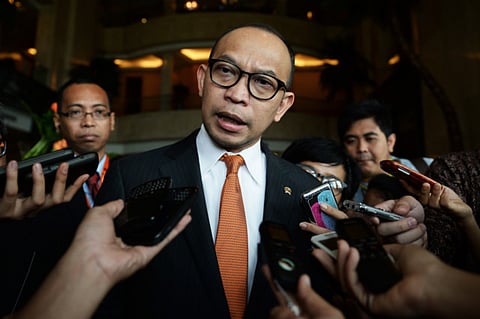Indonesia calls for greater clarity from Fed on tapering
Since tapering rumours emerged, some investors have exited the Fragile Five

Jakarta: Indonesia’s finance minister has joined India’s central bank governor in warning that the US Federal Reserve risks undermining fragile emerging market economies unless it clarifies plans to taper its extraordinary monetary stimulus programme.
Chatib Basri said that the Fed has improved its communications with emerging markets since he first raised the issue before the annual meeting of the International Monetary Fund in October.
But, ahead of a G20 meeting later in February, he said that the Fed needed to step up policy coordination or face a possible blowback if emerging markets’ prospects are damaged by further capital outflows.
“The uncertainty regarding tapering is still there,” he said. “Two weeks from now the finance ministers and central bank governors from the G20 will meet in Sydney. We need to re-emphasise the importance of coordination. Global growth must be supported by emerging markets because once advanced countries’ economies recover they need a market for their products.”
While he backed the call by Raghuram Rajan, India’s central bank governor, for more cooperation with industrialised nations, Basri said that emerging market governments had to accept that many of their problems were home-grown.
Since rumours about tapering first emerged in May 2013, some portfolio investors have rushed to exit the “Fragile Five” emerging markets — Brazil, India, Indonesia, South Africa and Turkey — because of fears that their reliance on foreign funding for their large current account deficits makes them vulnerable to a withdrawal of liquidity by the Fed.
Indonesia’s currency was hit hard last year, losing more than a quarter of its value against the US dollar.
But Basri said that Indonesia had fared better than other fragile emerging markets during the investor jitters of recent weeks because of efforts to tackle the current account deficit through higher borrowing rates and curbs on imports.
“India and Turkey have just raised interest rates quite significantly but because we pre-empted, we can handle this process more smoothly,” said the finance minister.
Although recent trade, inflation and gross domestic product data has reassured some investors in Indonesia, Basri recognised that Southeast Asia’s biggest economy still needed to do more to keep attracting much-needed capital.
One major area of concern is Indonesia’s ballooning fuel subsidy bill, which is being pushed higher because of the slide in the value of the rupiah in spite of a 44 per cent increase in the petrol price in June by outgoing President Susilo Bambang Yudhoyono.
Basri said he was working on plans to fix the amount of the subsidy as opposed to the system of fixing the petrol price that leaves the government absorbing the pain of a weaker currency and higher oil prices.
He said it was unlikely that there would be the political will to amend the subsidy regime before parliamentary and presidential elections in April and July respectively.
But he hoped there might be an opportunity between July and the handover of power in October.
“The next administration will be happy if the burden of the subsidy is no longer there and the current administration will not have any burden after the election,” he said. “So that will be the right time but it depends on the political situation.”
Financial Times



